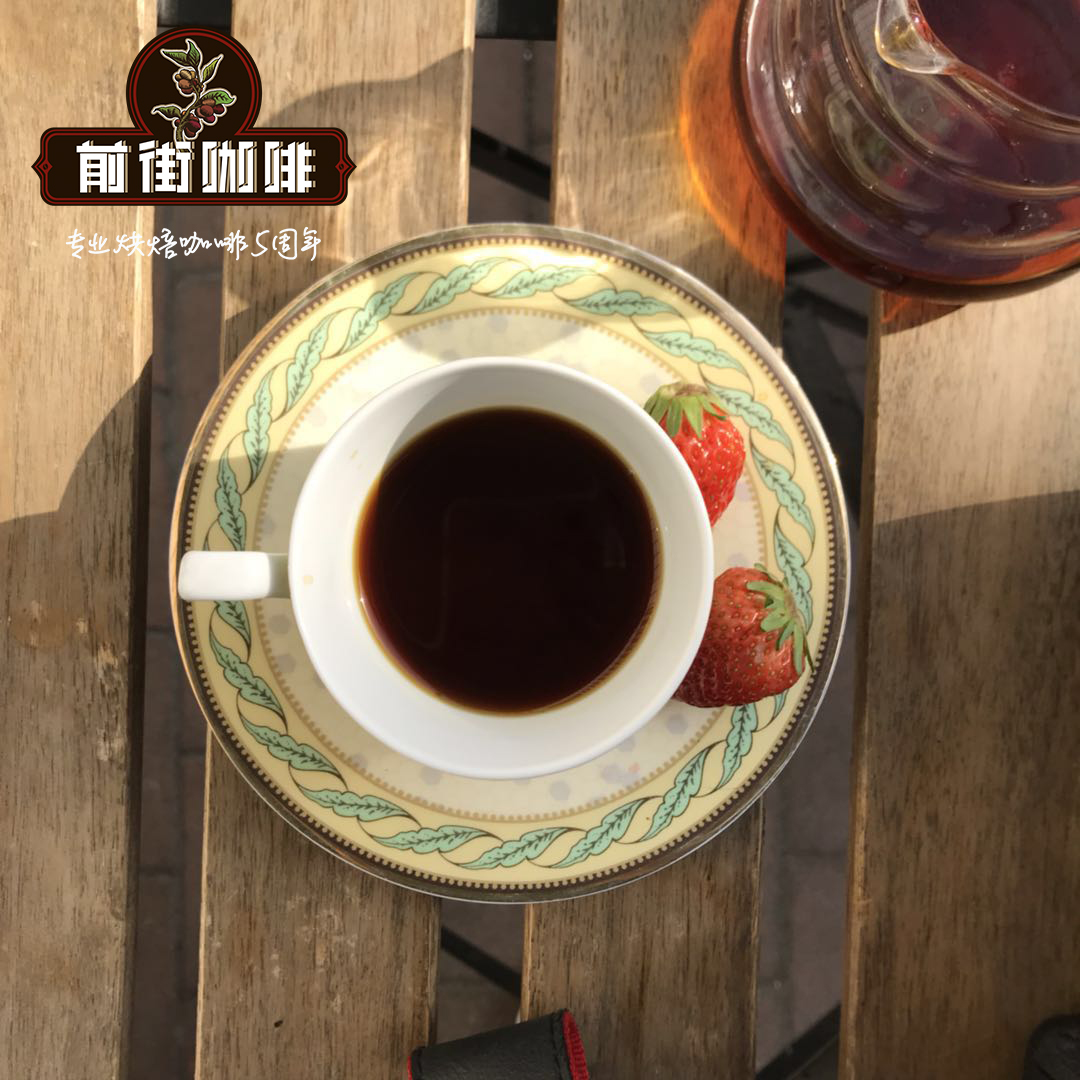How to handle decaf beans? which cafes have decaf? price list of decaf beans

Professional coffee knowledge exchange more coffee bean information please follow the coffee workshop (Wechat official account cafe_style)
Many Americans are experimenting with decaffeinated coffee in the hope of getting a "perfect" cup of coffee that tastes only coffee but does not stimulate the nervous system.
But is decaffeinated coffee really decaffeinated?
What's the difference between "decaffeinated" and "natural decaffeinated"?
Is it absolutely safe to remove caffeine from coffee?
Before you know what your decaffeinated coffee is, you first need to understand that there is nothing in it.
FDA's standard for decaffeinated coffee is that 97% of the original caffeine in coffee must be extracted from beans. So, yes, decaffeinated coffee still contains caffeine. But it's not much, is it?
The caffeine content varies greatly among different coffee beans.
● in the United States, the market for coffee, roughly two kinds of beans-tenacious robusta coffee beans and subtle Arabica beans.
Robusta beans generally contain two to three times as much caffeine as Arabica beans, and their astringency is often considered inferior. Instant coffee brands Folgers and Maxwell Coffee are often made from Robusta mixed bean extract, while Caribou and Starbucks have long insisted on using 100% Arabica beans.
Robota beans leave more caffeine after decaffeination than Arabica beans, and need to remove 97% of the caffeine to meet FDA standards.
FDA does not specify the exact caffeine content of decaffeinated coffee products. If you are looking for decaffeinated coffee, you should first pay attention to the type of coffee beans you choose.
A 12-ounce cup of decaffeinated coffee-- a Starbucks mug-- usually contains 18 milligrams of caffeine.
By comparison, an 8.4-ounce can of Red Bull contains 80 milligrams of caffeine.
The average level of caffeine in coffee can vary widely, usually between 140 and 300 milligrams.
In 2007, the Consumer report conducted a survey of decaf and regular coffee sampled from popular coffee shop chains. Although most chain stores have less than 5 milligrams of decaf per cup, Downdole, for example, has as much as 32 milligrams, while another of the best cafes in Seattle has a caffeine content of 29 milligrams-not the best choice for decaffeinated coffee. Among these samples, McDonald's has the lowest content of decaffeinated coffee.
Nutritionist MariaBella, who runs the highly balanced Nutrition, weight Management and healthy Diet Counseling Center in New York City, says people who are sensitive to caffeine will feel nervous about their caffeine intake, and it may be affected by other factors, such as diet and daily schedule.
She stressed that there is no such thing as decaffeinated coffee.
"drinks that are not caffeinated can be considered 'decaffeinated', such as coffee and herbal tea, which should not be labeled as caffeinated," she said. "
●, so how do you get completely decaf coffee?
Caffeine removal from green raw coffee beans requires many different processes, and each step affects the roasting process and how long the coffee stays fresh before it is roasted. Decaffeinated coffee spoils almost twice as fast as regular coffee.
The earliest decaffeinated method was developed in the early 1900s, using repeated cleaning and assisted by organic benzene. But this method was no longer used to make decaffeinated coffee because it was later identified as a carcinogen.
Today, like experienced winemakers, coffee bean processors are starting to use different decaffeinated methods to get the best taste and quality of coffee.
Many brands of ● coffee use chemical methods directly, which also involves chloromethane.
The other two methods are natural processes, using the plant hormone ethyl acetate or carbon dioxide or direct washing process. The last method of washing does not use any chemicals, but simply uses water.
The process of using carbon dioxide and washing in the process, initiated by SWISS WATER ®, is considered to be the most natural decontamination process and the only organic authentication method at present.
Zhihu Da Ren talks about Swiss Water treatment
Good Swiss water treatment decaffeinated or gray is still very popular, only water is used in the whole process, and the final caffeine content is less than 0.1% of dry weight, which is in line with ICO's definition of low-caffeinated coffee, less than 0.3%.
The raw bean sack looks like this--
Decaf does treat raw beans as follows:
Bathe the raw beans and soak them in water
Soluble substances are dissolved in water (including coffee flavor substances and caffeine)
Wood fiber, chlorogenic acid and so on are insoluble in water, remain in raw beans and precipitate caffeine.
Crucially, there is a perverted caffeine Terminator in the water, constantly filtering out the dissolved caffeine, and the concentration difference between the solution and raw beans continues to help caffeine dissolve into the water.
8Murray 10 hours later, the coffee raw bean bubble is comfortable, and the caffeine is only 0.1%.
The final guess should be drying and dehydration. Because I have raw beans in my hands, and it looks like this.
Finally, I would like to talk about flavor, because I do not have the conditions to compare the flavor with the exact same batch of untreated raw beans, subjectively speaking, the body of water-treated coffee beans is weaker and slightly astringent (it may be the problem of my baking, because the water content is obviously not normal). The richness of flavor is weak, and I forgot to use TDS test after brewing, whether the water-soluble matter will be lower under the same conditions. Subjectively, it feels lighter to drink, and if the TDS is low, you can make up for it with a higher powder-to-water ratio.
Although low-caffeine coffee beans are becoming more and more popular, they are still difficult to find in most supermarkets.
● chloromethane, a chemical directly used in the decontamination process of raw coffee beans, is listed as a possible carcinogen by the National Cancer Institute, but FDA considers 10 ppm (ppm) as a safe intake. Trace amounts of the chemical were found in decaffeinated coffee drinks, but most of the mixed concentrations were at or below 1ppm.
LorenzoPerkins, vice president of the American boutique coffee association, certified Grade 2 barista, founder of Cuvee Coffee in Austin, Texas, who has been in the coffee industry for 13 years, says the lack of chloromethane in decaf coffee attracts little attention.
When he saw all this, he said, "Chloromethane is the least likely to affect the original taste of coffee, because it is also a chemical bond of caffeine alkaloids, which peels off other organic substances and even achieves the desired taste of coffee."
Nevertheless, coffee producers quickly felt that consumers were becoming more sensitive to additives. Starbucks uses methyl chloride to remove most of the caffeine from mixed beans.
Now, Sumatra, Indonesia offers a better "natural treatment" for decaffeinated coffee. Caribou Coffee uses water without chemicals to make decaffeinated coffee to ensure that there is no chemical residue from the process it uses.
!
● 's last tip about decaf:
Studies have found that drinking regular coffee every day can reduce the incidence of hypertension, reduce bone mineral density and stabilize gastric acidity balance.
Switching to decaf can help relieve insomnia. Coffee lovers who want to avoid insomnia might as well try drinking decaf coffee.
"because phytochemicals still remain in the decaffeinated process, long-term consumption of decaffeinated coffee may cause many health conditions," Bella said.
Possible consequences of these residual chemicals include increased acidity of the stomach (heartburn or GERD), interference with mineral absorption (especially iron), and an increased incidence of rheumatoid arthritis.
Qianjie coffee: Guangzhou bakery, the store is small but a variety of beans, you can find a variety of unknown beans, but also provide online store services. Https://shop104210103.taobao.com
Important Notice :
前街咖啡 FrontStreet Coffee has moved to new addredd:
FrontStreet Coffee Address: 315,Donghua East Road,GuangZhou
Tel:020 38364473
- Prev

What is decaf coffee? how do decaf beans come from? what are the kinds of decaf coffee?
Professional coffee knowledge exchange more coffee bean information Please follow the coffee workshop (Wechat official account cafe_style) the history of low-caffeine coffee is said to date back to more than a hundred years, but low-caffeine coffee is more mature in recent decades, low-caffeine coffee is for those who like the mellow taste of coffee, but also afraid that caffeine will harm their health. Very recently
- Next

Where can I find decaffeinated coffee? how is decaffeinated coffee made? how much is a cup of decaf?
Professional coffee knowledge exchange more coffee bean information please follow the coffee workshop (Wechat official account cafe_style) the so-called decaf coffee is only a small amount of caffeine coffee. The caffeine content in brewed coffee should not exceed 0.3%. In other words, the caffeine in a cup of decaf should not exceed 5mg (usually a cup of 236mI coffee contains caffeine from 50mg to 200mg.
Related
- Beginners will see the "Coffee pull flower" guide!
- What is the difference between ice blog purified milk and ordinary milk coffee?
- Why is the Philippines the largest producer of crops in Liberia?
- For coffee extraction, should the fine powder be retained?
- How does extracted espresso fill pressed powder? How much strength does it take to press the powder?
- How to make jasmine cold extract coffee? Is the jasmine + latte good?
- Will this little toy really make the coffee taste better? How does Lily Drip affect coffee extraction?
- Will the action of slapping the filter cup also affect coffee extraction?
- What's the difference between powder-to-water ratio and powder-to-liquid ratio?
- What is the Ethiopian local species? What does it have to do with Heirloom native species?

